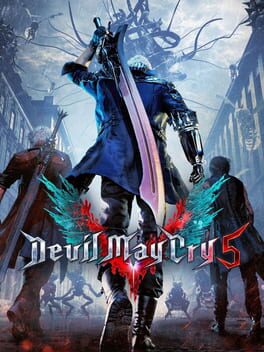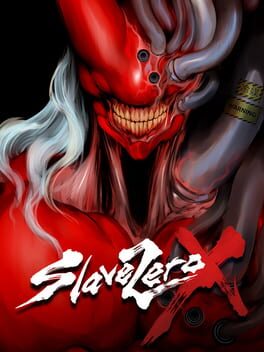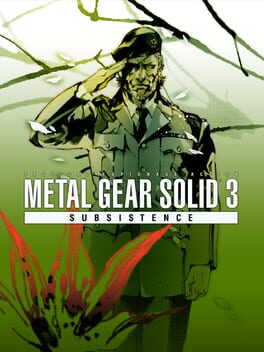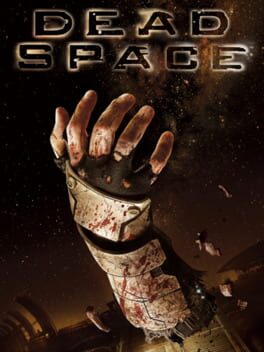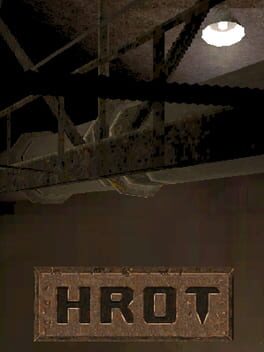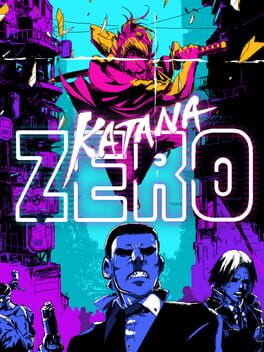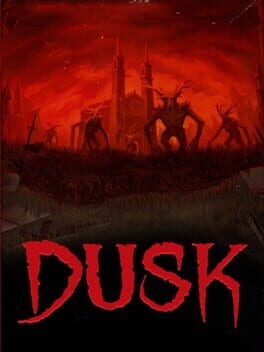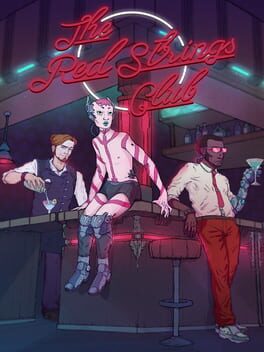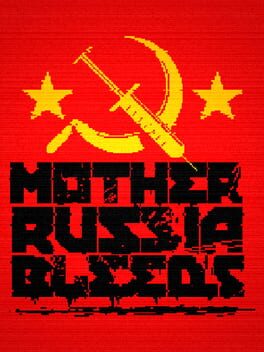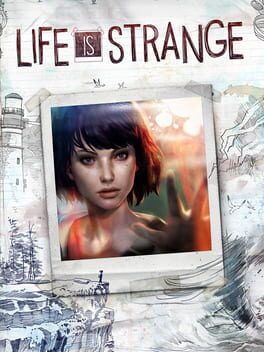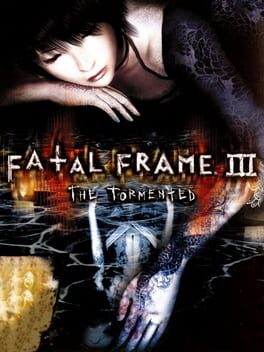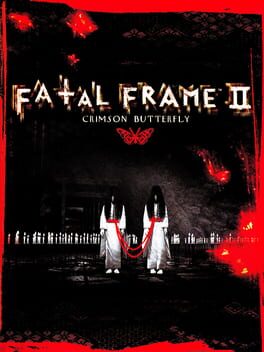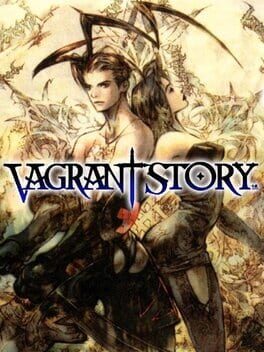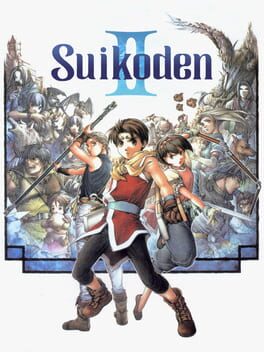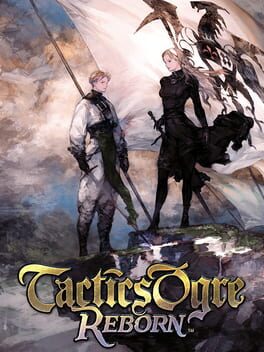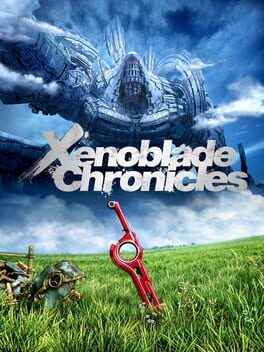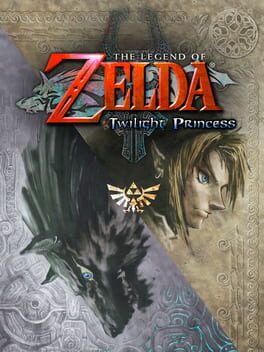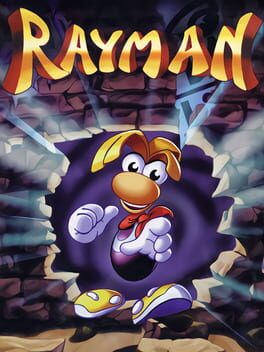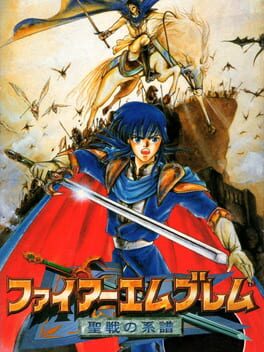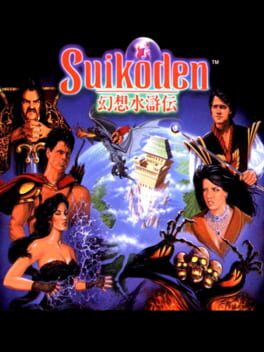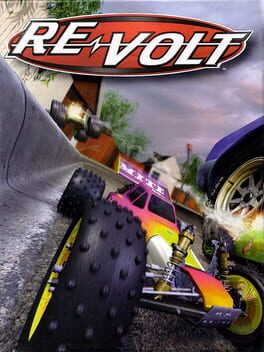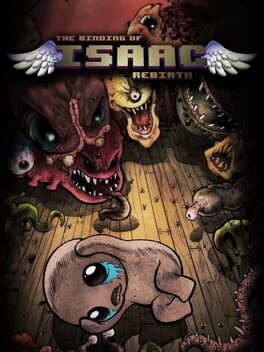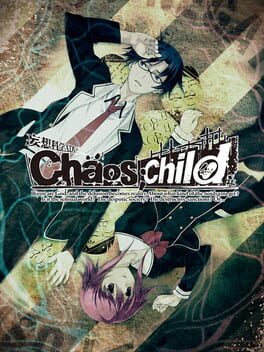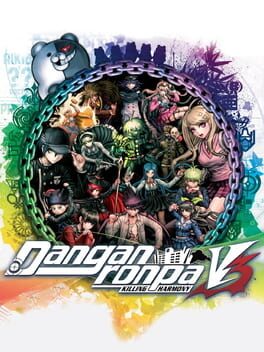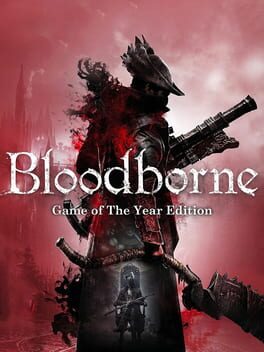Daante_
48 reviews liked by Daante_
If there’s anything in this world worth keeping alive, it’s love.
In the void that is Revachol, we see the light of love and hope slowly fade away. It is up to us to cultivate and nurture that light so it does not die. Love is not dead! As you read this, you are alive and breathing, and it's up to you to seize what remains and fight for it. We can no longer wait for some great revolution that will fix all of our problems. If you truly desire a revolution, you must create the conditions necessary to birth it!
Disco Elysium isn’t just a game about what political faction you align with or finding out who lynched the man behind Whirling-in-Rags; it’s a story about love and why we must hold onto it, even in the darkest of times. I understand that nowadays, with the current state of affairs, it's hard to believe in love and hope. It's difficult to place our hope in a future that seems to have been stolen away from us, yet that's precisely when we need it the most.
I choose to believe in love. I choose to hold on to the hope that a better future is possible, no matter what, because I believe it is. The people we know, the community we live in, and the world we inhabit are worth fighting for. Disco Elysium taught me that fixing the world and making it a better place isn’t just about picking up a gun and waging some violent revolution; it’s about cultivating community and caring for those in it. That’s where the true beauty of Disco Elysium lies.
I believe the way this game conveys that message is quite powerful. Disco doesn't make some grand showy gesture beating you over the head with its message; instead, it laboriously takes the time to show you that the world you live in is beautiful and worth fighting for. It spends the time showing you the inner lives of those around you and has you helping them, one person at a time.
There is one specific character that I feel best embodies this: Cuno. Cuno, at first, is seen to be an irrational, difficult, vulgar, and poorly-behaved child, which leads you to inevitably hate him. As you learn more about Cuno and his home life, however, you realise there’s something greater at play. He doesn’t act out for the hell of it; he is the way he is because his father is a drunk who’s fallen down on his luck due to becoming a victim of the system giving up on him and his son. He’s left with no choice. The system has abandoned Uuno and his son, leaving them both to fend for themselves and pick up the pieces. Which sadly isn’t uncommon in Revachol and the real world as well. It’s perhaps one of the most striking and poignant stories in the game. I eventually went from despising Cuno to feeling empathy for him, as I did for many others in Revachol when I learned their stories.
I believe this approach to storytelling and character writing is incredibly effective, and the best part about Disco Elysium is that these kinds of stories are all over the game. This goes to show how much love and care was put into humanising the inhabitants of Revachol, which helps make the world feel alive. Because of how well the game fleshed out its world and characters Disco Elysium was successful at conveying the message that this world is worth fighting for. Not only was I captivated by this world, but as the game drew to a close, I found myself deeply invested in the wellbeing of these characters and the city.
As I learned about these stories, Revachol’s history, and the many political factions vying for power, I realised that this game was never about solving a murder or finding which faction is "correct." It was about learning to love those around us and working together to create a better world, one step at a time. Creating a better world was never an unattainable goal conjured up in the minds of idealistic and "ignorant" kids. It is a possible reality, but it demands the working toiling masses of the world unite and work hand in hand in creating this future. It is on us to seize the future and lift eachother up when we need it most.
Never give up on fighting for this future. It is only dead when you allow yourself to be convinced that it is.
In the void that is Revachol, we see the light of love and hope slowly fade away. It is up to us to cultivate and nurture that light so it does not die. Love is not dead! As you read this, you are alive and breathing, and it's up to you to seize what remains and fight for it. We can no longer wait for some great revolution that will fix all of our problems. If you truly desire a revolution, you must create the conditions necessary to birth it!
Disco Elysium isn’t just a game about what political faction you align with or finding out who lynched the man behind Whirling-in-Rags; it’s a story about love and why we must hold onto it, even in the darkest of times. I understand that nowadays, with the current state of affairs, it's hard to believe in love and hope. It's difficult to place our hope in a future that seems to have been stolen away from us, yet that's precisely when we need it the most.
I choose to believe in love. I choose to hold on to the hope that a better future is possible, no matter what, because I believe it is. The people we know, the community we live in, and the world we inhabit are worth fighting for. Disco Elysium taught me that fixing the world and making it a better place isn’t just about picking up a gun and waging some violent revolution; it’s about cultivating community and caring for those in it. That’s where the true beauty of Disco Elysium lies.
I believe the way this game conveys that message is quite powerful. Disco doesn't make some grand showy gesture beating you over the head with its message; instead, it laboriously takes the time to show you that the world you live in is beautiful and worth fighting for. It spends the time showing you the inner lives of those around you and has you helping them, one person at a time.
There is one specific character that I feel best embodies this: Cuno. Cuno, at first, is seen to be an irrational, difficult, vulgar, and poorly-behaved child, which leads you to inevitably hate him. As you learn more about Cuno and his home life, however, you realise there’s something greater at play. He doesn’t act out for the hell of it; he is the way he is because his father is a drunk who’s fallen down on his luck due to becoming a victim of the system giving up on him and his son. He’s left with no choice. The system has abandoned Uuno and his son, leaving them both to fend for themselves and pick up the pieces. Which sadly isn’t uncommon in Revachol and the real world as well. It’s perhaps one of the most striking and poignant stories in the game. I eventually went from despising Cuno to feeling empathy for him, as I did for many others in Revachol when I learned their stories.
I believe this approach to storytelling and character writing is incredibly effective, and the best part about Disco Elysium is that these kinds of stories are all over the game. This goes to show how much love and care was put into humanising the inhabitants of Revachol, which helps make the world feel alive. Because of how well the game fleshed out its world and characters Disco Elysium was successful at conveying the message that this world is worth fighting for. Not only was I captivated by this world, but as the game drew to a close, I found myself deeply invested in the wellbeing of these characters and the city.
As I learned about these stories, Revachol’s history, and the many political factions vying for power, I realised that this game was never about solving a murder or finding which faction is "correct." It was about learning to love those around us and working together to create a better world, one step at a time. Creating a better world was never an unattainable goal conjured up in the minds of idealistic and "ignorant" kids. It is a possible reality, but it demands the working toiling masses of the world unite and work hand in hand in creating this future. It is on us to seize the future and lift eachother up when we need it most.
Never give up on fighting for this future. It is only dead when you allow yourself to be convinced that it is.
Signalis
2022
Wow, what a masterpiece. This definitely made its way into my all time favorite games and is one of the best horror games I’ve ever played. It’s an incredible piece of survival horror with its own unique style and some of the best art direction I’ve ever seen. What it takes and honors from its predecessors it does masterfully.
I’m still in awe of this games style and imagery. The way it mixes dystopian future, multiple languages, with this lovecraftian Silent Hill esque gore is amazing. It also has potent themes that give this existential horror dread. The gameplay is a blast and I love all the Resident Evil item management mechanics. The puzzles are tough but really fun to figure and really well made. The level design is perfect as well. The soundtrack is hauntingly eerie, but beautiful.
All in all one of my favorite games ever and had a really big impact on me
I’m still in awe of this games style and imagery. The way it mixes dystopian future, multiple languages, with this lovecraftian Silent Hill esque gore is amazing. It also has potent themes that give this existential horror dread. The gameplay is a blast and I love all the Resident Evil item management mechanics. The puzzles are tough but really fun to figure and really well made. The level design is perfect as well. The soundtrack is hauntingly eerie, but beautiful.
All in all one of my favorite games ever and had a really big impact on me
Resident Evil 4
2023
Beneath the surface of Resident Evil 4 Remake’s 4K high-definition models, textures, and overly-polished sterile gameplay lies the rotting reactionary corpse of modernity. Resident Evil 4 Remake represents the logical end-point for art under late-stage capitalism, where creators are in a petrified state of artistic stasis where everything old must be modernised, updated, and ‘fixed’. I cannot bring myself to care about this game or the two remakes that preceded it. It’s become a homogenous and trite blob of nothingness, void of any soul or integrity.
Devil May Cry 5
2019
How do you bring a franchise back into the public conscious after a decade of hiatus?
That was the question asked to Hideaki Itsuno, in the years following the release of DmC Devil May Cry... after some talking to. For reasons unknown to those outside Capcom, he was actually looking to leave the company following the game's release. I speculate it had to do with DmC resulting in Dragon's Dogma coming out incredibly compromised in a state that made DMC4 look like a feature complete video game. After practically being pleaded with to stay with the company he'd worked with for decades, Itsuno came to the conclusion: He'd stay if he got to make the games he wanted, with Devil May Cry 5 and Dragon's Dogma 2 at the top of that list.
After the reboot failed to meet Capcom's sales expectations multiple times, Capcom probably saw the reboot universe as a lost cause, and weren't exactly up to lose Itsuno after the over decade long revolving doors of some of their most well known staff. Regardless of how anyone feels one way or the other about their work in and outside of Capcom, the departures of notable figureheads like Mikami, Kamiya, Inafune, and later both Niitsuma and Ono, were making the company look like it was bleeding talent. Itsuno's one of the only really recognisable figureheads the company has left from their relatively earlier years, so for the higher-ups to basically have to get down and beg for him to stay is a testiment to the attempt there was to correct their ruined image after the 7th gen hellscape left them with the oft thrown around "Japanese EA" moniker. And through it all, Itsuno and producer Matt Walker were claiming DMC5 would exceed expectations, and that it was the best game Itsuno had ever directed. Huge shoes to fill, when Devil May Cry 3 was arguably still the baseline for any action games to measure up to.
So, how do you exactly bring a franchise like Devil May Cry, left dormant after 2008 barring a notoriously contentious reboot attempt, into the landscape of 2019? Well, you just make it the same as it ever was, add some nice QOL features and stylisation choices that became genre standards in the decade since DMC4 released, and top it off with supped up graphics to flex your insane in-house RE Engine. Itsuno went on record to say that Capcom never even considered a God Of War 2018 style revamping of DMC's gameplay, and thank FUCKING CHRIST. At a time when action games as a genre were mostly MIA in favour of Soulslikes, with the more technical and in depth takes on the traditional action genre only being handled by a company that were on the verge of collapse before the release of Nier Automata, and a few indie devs, the fact Itsuno took a look at GOW abandoning its action game roots and steered in the complete opposite direction, even as journos were kneeling down to suck the game off with slacked jaws, is to be commended in and of itself. A refusal to cave to the current trends of the industry, and to instead go headlong in the direction of your own vision, is something the industry needs more of in this day and age.
All this to say that, at its core, Devil May Cry 5 is exactly what it needed to be from the jump: Devil May Cry 4, with nooks and crannies taken from the best the genre's had to offer over the 11 years prior, and innovations fresh from the minds of Itsuno and his team. Dynamic music, slow-motion cut-ins upon clearing an encounter, the ability to taunt in the air, there were entire things within DMC5's presentation and mechanics that I didn't even know I'd wanted until I got them, and now it's weird to imagine DMC without them. That's the best thing a game like this can do; give me a bunch of shit I never even thought of, and having it all be good. Add on more linear levels that, while contentious still to this day over the lack of item collecting, I think most players would agree are an improvement over the backtracking laden, gimmicky slogs of some of DMC4's missions, and you've got the baseline of what everybody and their mother wanted from a theoretical Devil May Cry 5 for an entire decade... barring the unfortunate removal of some of DMC4's more advanced mechanics, mind. Inertia being stripped in favor of some moves like Rainstorm having way more manual control are okay enough by me, even if I really miss the huge aerial blow-back that Nero's level 3 charge shot gave, but the late removal of reversals due to the play-testers accidentally pulled them off is incredibly dumb. Leave that shit in; low level players won't have to interact with it at all, and it's only a good thing for the high level players who want to use those sorts of mechanics to craft their own playstyle. It is what it is, but man, think of the possibilities...
That's just covering the game's overall quality without even dwelling into the core combat, though. It's when you really get into the details of the game's three base characters that things start to really take shape. Nero's finally had room expanded within his combat system in a way that makes him feel more unique, and all it took to give him more, was to give him less. Some new moves are in his base moveset, Exceed timing is made a little less tight, and there's a new take on the charge shot, but for the most part, Nero's Red Queen moveset is as you remember it from DMC4. It's losing the Devil Bringer that allows him the most interesting changeup to his playstyle, with the new Devil Breaker system making up the bulk of new stuff he has to play around with. You've still got an always accessible grapple for anything you need, but with it comes a brand new selection of robot arms that you can purchase or find scattered throughout stages. Between an electric palm thrust, extra mobility, just straight up replicating the Devil Bringer from DMC4, the Mega Buster and a handful of others, and having both a standard and charged attack designed to destroy the arm, it's fair to say Nero's got plenty more to offer while still feeling distinct enough from Dante... including the lack of being able to swap them on the fly without manually destroying them. Whether by popping their ultimate Breakage ability, detonating them yourself on the fly, or just eating shit from anything hitting you while attacking with them, you've gotta lose your current Devil Breaker in order to change to your next. A mechanic that makes Nero feel unique, sure, but one that makes many players yearn for the idea of the more traditional series staple weapon swapping whenever you'd like. I'd personally have opted to at least have the option of full breaker swapping be a post-game unlock, allowing both sides of the fence to be pleased, but by and large? I love the Devil Breaker system as it is now, a great way to spice up Nero's already fun and unique gameplay.
But what if you want something more experimental from your DMC? Enter, V, the game's new protagonist. A pure human, weak and frail as it gets, V's only means of attacking is via his dinky little cane, some wacky abilities he's found himself with, and three familiar looking demons from years past to dish out the pain before he can swoop in to snatch the kill. In V is a basis for a much simpler character, despite how complicated and unorthodox he may appear at first glance. He's got overtuned style point generation, and doesn't have nearly as much to offer to his moveset as the other two demon hunters do. Simple by design, almost to be the new Nero now that he has more to offer, and I think it's a shame that he doesn't at least have another trio of demons to swap between for more combo potential. Not to say he's devoid of mechanics; you can siphon DT to put demons on auto pilot, chain V's finishing blows together if you're adept with timing and whittling enemies down, and you're incentivized to stay in the action to regain DT via reading a book. Add to it the abilities to quickly withdraw a summon from danger with a dodge, as they're operating on their own health bars, and you've got a really cool base for a character archetype not often seen in games like this. but the biggest thing I think V needed, beyond some better AI for his sole melee option, was more options for fending off on his own, in those moments your familiars are out of the fight. Maybe more focused attacks to sacrifice DT meter for, or a few basic combos with his cane. It works like a charm at making you feel like a character completely out of their element and with no means of defense, but standing around or running away when the going gets tough, assuming you can't spare some DT, is antithetical to the style of these types of games. But within V, I think, is a really interesting and cool template that just needs a bit more work done to make something truly amazing. Were this playstyle to ever return, more options and some more refined AI would be prime changes to make; if anything, I'm shocked Dragon's Dogma 2 isn't seemingly going down that route. But as he is? A good first attempt that needs work. Even the worst Itsuno developed action game characters are better than some developers' bests, though, so let that be something worth noting.
But then, there's Dante. Goddamn. Between the returning on the fly style switching, now all buffed to DMC3 levels and rocking supped up mechanics to make Royal Guard more manageable for new players, to multiple brand new weapons that all feel distinct, and an entirely new mechanic with a new form of Devil Trigger, complete with an original moveset, and even possessing an entirely unique ability being tied to maxing out your Style Rank... any minor complaints I could have feel like I'm bitching about the smallest, most minuscule blemishes on a diamond. DSD's summoned swords moveset alone cement this motherfucker as the peak of action game character gameplay, and I don't think that'll change until DMC6 drops at some time around 2029 or so. Combine it with, for my money, the best enemy lineup since the original 2001 title, and a boss lineup thats insane highs tower far above any of the issues I could have with those few less good bosses, and you've got a video game that's as consistent as consistency. A combat system I'm still ringing dry in my free time, because it's just plain fun.
And how about that soundtrack? DMC5's OST is jam packed with the most tracks of any entry in the franchise, by far. The electrifying battle themes are the obvious mentions, with dynamic shifts in place the harder you style to further bring out each character's different personality in the form of their personal theme. But that's the tip of the iceberg, with almost every boss track being among the most best of the franchise, from the heavy guitars of Elder Night Geryon and Cavaliere Angelo, to the electronic beats of Goliath, King Cerberus and Niddhogg, and the thunderous, leitmotif-laden orchestras that accompany the showdowns with Urizen. Even the often slept on environmental pieces have a few winners, the damn stage start menu tracks are worth listening to, for crying out loud! And so many cutscenes, particularly in the endgame, have their most important, showstopping moments only accentuated by the backing of the game's score. It's something else; a fantastic OST with plenty of variety in its incredibly strong track list.
But the real glue that holds the game together? It's that damn story. Without getting into spoiler territory, DMC5 is a story that feels written to reward those who stuck through thick and thin with the franchise; a massive love letter to the prior titles, with winks and nods to obscure side material like the novels, manga and anime series thrown in. But it isn't just some nostalgia fueled wankfest, it furthers the series' core themes of humanity and family, but also pays off the lesser-focused on theme of legacy in one fell swoop for good measure. It's one of the most heartfelt and sincere narratives I've seen in a game, without ever taking itself too seriously, and pushes the franchise's status quo further in ways that feel like they were genuinely a long time pay off, rather than an incredibly Ill-conceived blindsiding that serves little more than to irreparably damage the canon. The last few missions in particular, that's the kinda shit you only get to see once.
But that's the matter of Devil May Cry 5 as a video game. An incredibly heartfelt masterclass of the medium, developed by a man who finally had the budget to compliment his vision. What it means to me is a lot more personal. To keep it brief, the lead-up to release was one of the worst times of my life. I was basically floating through every day without purpose, and to have the game of my dreams come out and sweep me off my feet... it's not affecting how I genuinely feel about the game, but goddamn it makes that first playthrough hit all the harder in retrospect. It was exactly what I needed, exactly when I needed it, and I think we all have a piece of media like that, at least once in our lives.
As of the day I post this, it's been exactly 5 years since Devil May Cry 5 released. We're halfway to matching the time between 4's release and 5's announcement, baby! Since then, the series has barely seen any content; Switch ports of the first three games, barely any info about the Netflix series, and a dogshit Gacha that might actually be a worse entry to the series than its 2003 sequel. Dragon's Dogma 2 also releases in mere weeks, and it's unknown if there's much more gas in Itsuno's tank after directing such a massive scale RPG that'll doubtlessly be the DMC5 to the original's DMC4. Maybe he'll helm one more entry, or pass the buck off to someone else. Maybe Capcom will just go back to milking Street Fighter, Monster Hunter and Resident Evil, pretending DMC doesn't exist, like they always do! I don't know what the future holds. But I know that Devil May Cry 5 happened, I was there for it, and I'm so goddamn happy I was.
"That day, if our positions were switched... Would our fates be different? Would I have your life, and you mine?"
That was the question asked to Hideaki Itsuno, in the years following the release of DmC Devil May Cry... after some talking to. For reasons unknown to those outside Capcom, he was actually looking to leave the company following the game's release. I speculate it had to do with DmC resulting in Dragon's Dogma coming out incredibly compromised in a state that made DMC4 look like a feature complete video game. After practically being pleaded with to stay with the company he'd worked with for decades, Itsuno came to the conclusion: He'd stay if he got to make the games he wanted, with Devil May Cry 5 and Dragon's Dogma 2 at the top of that list.
After the reboot failed to meet Capcom's sales expectations multiple times, Capcom probably saw the reboot universe as a lost cause, and weren't exactly up to lose Itsuno after the over decade long revolving doors of some of their most well known staff. Regardless of how anyone feels one way or the other about their work in and outside of Capcom, the departures of notable figureheads like Mikami, Kamiya, Inafune, and later both Niitsuma and Ono, were making the company look like it was bleeding talent. Itsuno's one of the only really recognisable figureheads the company has left from their relatively earlier years, so for the higher-ups to basically have to get down and beg for him to stay is a testiment to the attempt there was to correct their ruined image after the 7th gen hellscape left them with the oft thrown around "Japanese EA" moniker. And through it all, Itsuno and producer Matt Walker were claiming DMC5 would exceed expectations, and that it was the best game Itsuno had ever directed. Huge shoes to fill, when Devil May Cry 3 was arguably still the baseline for any action games to measure up to.
So, how do you exactly bring a franchise like Devil May Cry, left dormant after 2008 barring a notoriously contentious reboot attempt, into the landscape of 2019? Well, you just make it the same as it ever was, add some nice QOL features and stylisation choices that became genre standards in the decade since DMC4 released, and top it off with supped up graphics to flex your insane in-house RE Engine. Itsuno went on record to say that Capcom never even considered a God Of War 2018 style revamping of DMC's gameplay, and thank FUCKING CHRIST. At a time when action games as a genre were mostly MIA in favour of Soulslikes, with the more technical and in depth takes on the traditional action genre only being handled by a company that were on the verge of collapse before the release of Nier Automata, and a few indie devs, the fact Itsuno took a look at GOW abandoning its action game roots and steered in the complete opposite direction, even as journos were kneeling down to suck the game off with slacked jaws, is to be commended in and of itself. A refusal to cave to the current trends of the industry, and to instead go headlong in the direction of your own vision, is something the industry needs more of in this day and age.
All this to say that, at its core, Devil May Cry 5 is exactly what it needed to be from the jump: Devil May Cry 4, with nooks and crannies taken from the best the genre's had to offer over the 11 years prior, and innovations fresh from the minds of Itsuno and his team. Dynamic music, slow-motion cut-ins upon clearing an encounter, the ability to taunt in the air, there were entire things within DMC5's presentation and mechanics that I didn't even know I'd wanted until I got them, and now it's weird to imagine DMC without them. That's the best thing a game like this can do; give me a bunch of shit I never even thought of, and having it all be good. Add on more linear levels that, while contentious still to this day over the lack of item collecting, I think most players would agree are an improvement over the backtracking laden, gimmicky slogs of some of DMC4's missions, and you've got the baseline of what everybody and their mother wanted from a theoretical Devil May Cry 5 for an entire decade... barring the unfortunate removal of some of DMC4's more advanced mechanics, mind. Inertia being stripped in favor of some moves like Rainstorm having way more manual control are okay enough by me, even if I really miss the huge aerial blow-back that Nero's level 3 charge shot gave, but the late removal of reversals due to the play-testers accidentally pulled them off is incredibly dumb. Leave that shit in; low level players won't have to interact with it at all, and it's only a good thing for the high level players who want to use those sorts of mechanics to craft their own playstyle. It is what it is, but man, think of the possibilities...
That's just covering the game's overall quality without even dwelling into the core combat, though. It's when you really get into the details of the game's three base characters that things start to really take shape. Nero's finally had room expanded within his combat system in a way that makes him feel more unique, and all it took to give him more, was to give him less. Some new moves are in his base moveset, Exceed timing is made a little less tight, and there's a new take on the charge shot, but for the most part, Nero's Red Queen moveset is as you remember it from DMC4. It's losing the Devil Bringer that allows him the most interesting changeup to his playstyle, with the new Devil Breaker system making up the bulk of new stuff he has to play around with. You've still got an always accessible grapple for anything you need, but with it comes a brand new selection of robot arms that you can purchase or find scattered throughout stages. Between an electric palm thrust, extra mobility, just straight up replicating the Devil Bringer from DMC4, the Mega Buster and a handful of others, and having both a standard and charged attack designed to destroy the arm, it's fair to say Nero's got plenty more to offer while still feeling distinct enough from Dante... including the lack of being able to swap them on the fly without manually destroying them. Whether by popping their ultimate Breakage ability, detonating them yourself on the fly, or just eating shit from anything hitting you while attacking with them, you've gotta lose your current Devil Breaker in order to change to your next. A mechanic that makes Nero feel unique, sure, but one that makes many players yearn for the idea of the more traditional series staple weapon swapping whenever you'd like. I'd personally have opted to at least have the option of full breaker swapping be a post-game unlock, allowing both sides of the fence to be pleased, but by and large? I love the Devil Breaker system as it is now, a great way to spice up Nero's already fun and unique gameplay.
But what if you want something more experimental from your DMC? Enter, V, the game's new protagonist. A pure human, weak and frail as it gets, V's only means of attacking is via his dinky little cane, some wacky abilities he's found himself with, and three familiar looking demons from years past to dish out the pain before he can swoop in to snatch the kill. In V is a basis for a much simpler character, despite how complicated and unorthodox he may appear at first glance. He's got overtuned style point generation, and doesn't have nearly as much to offer to his moveset as the other two demon hunters do. Simple by design, almost to be the new Nero now that he has more to offer, and I think it's a shame that he doesn't at least have another trio of demons to swap between for more combo potential. Not to say he's devoid of mechanics; you can siphon DT to put demons on auto pilot, chain V's finishing blows together if you're adept with timing and whittling enemies down, and you're incentivized to stay in the action to regain DT via reading a book. Add to it the abilities to quickly withdraw a summon from danger with a dodge, as they're operating on their own health bars, and you've got a really cool base for a character archetype not often seen in games like this. but the biggest thing I think V needed, beyond some better AI for his sole melee option, was more options for fending off on his own, in those moments your familiars are out of the fight. Maybe more focused attacks to sacrifice DT meter for, or a few basic combos with his cane. It works like a charm at making you feel like a character completely out of their element and with no means of defense, but standing around or running away when the going gets tough, assuming you can't spare some DT, is antithetical to the style of these types of games. But within V, I think, is a really interesting and cool template that just needs a bit more work done to make something truly amazing. Were this playstyle to ever return, more options and some more refined AI would be prime changes to make; if anything, I'm shocked Dragon's Dogma 2 isn't seemingly going down that route. But as he is? A good first attempt that needs work. Even the worst Itsuno developed action game characters are better than some developers' bests, though, so let that be something worth noting.
But then, there's Dante. Goddamn. Between the returning on the fly style switching, now all buffed to DMC3 levels and rocking supped up mechanics to make Royal Guard more manageable for new players, to multiple brand new weapons that all feel distinct, and an entirely new mechanic with a new form of Devil Trigger, complete with an original moveset, and even possessing an entirely unique ability being tied to maxing out your Style Rank... any minor complaints I could have feel like I'm bitching about the smallest, most minuscule blemishes on a diamond. DSD's summoned swords moveset alone cement this motherfucker as the peak of action game character gameplay, and I don't think that'll change until DMC6 drops at some time around 2029 or so. Combine it with, for my money, the best enemy lineup since the original 2001 title, and a boss lineup thats insane highs tower far above any of the issues I could have with those few less good bosses, and you've got a video game that's as consistent as consistency. A combat system I'm still ringing dry in my free time, because it's just plain fun.
And how about that soundtrack? DMC5's OST is jam packed with the most tracks of any entry in the franchise, by far. The electrifying battle themes are the obvious mentions, with dynamic shifts in place the harder you style to further bring out each character's different personality in the form of their personal theme. But that's the tip of the iceberg, with almost every boss track being among the most best of the franchise, from the heavy guitars of Elder Night Geryon and Cavaliere Angelo, to the electronic beats of Goliath, King Cerberus and Niddhogg, and the thunderous, leitmotif-laden orchestras that accompany the showdowns with Urizen. Even the often slept on environmental pieces have a few winners, the damn stage start menu tracks are worth listening to, for crying out loud! And so many cutscenes, particularly in the endgame, have their most important, showstopping moments only accentuated by the backing of the game's score. It's something else; a fantastic OST with plenty of variety in its incredibly strong track list.
But the real glue that holds the game together? It's that damn story. Without getting into spoiler territory, DMC5 is a story that feels written to reward those who stuck through thick and thin with the franchise; a massive love letter to the prior titles, with winks and nods to obscure side material like the novels, manga and anime series thrown in. But it isn't just some nostalgia fueled wankfest, it furthers the series' core themes of humanity and family, but also pays off the lesser-focused on theme of legacy in one fell swoop for good measure. It's one of the most heartfelt and sincere narratives I've seen in a game, without ever taking itself too seriously, and pushes the franchise's status quo further in ways that feel like they were genuinely a long time pay off, rather than an incredibly Ill-conceived blindsiding that serves little more than to irreparably damage the canon. The last few missions in particular, that's the kinda shit you only get to see once.
But that's the matter of Devil May Cry 5 as a video game. An incredibly heartfelt masterclass of the medium, developed by a man who finally had the budget to compliment his vision. What it means to me is a lot more personal. To keep it brief, the lead-up to release was one of the worst times of my life. I was basically floating through every day without purpose, and to have the game of my dreams come out and sweep me off my feet... it's not affecting how I genuinely feel about the game, but goddamn it makes that first playthrough hit all the harder in retrospect. It was exactly what I needed, exactly when I needed it, and I think we all have a piece of media like that, at least once in our lives.
As of the day I post this, it's been exactly 5 years since Devil May Cry 5 released. We're halfway to matching the time between 4's release and 5's announcement, baby! Since then, the series has barely seen any content; Switch ports of the first three games, barely any info about the Netflix series, and a dogshit Gacha that might actually be a worse entry to the series than its 2003 sequel. Dragon's Dogma 2 also releases in mere weeks, and it's unknown if there's much more gas in Itsuno's tank after directing such a massive scale RPG that'll doubtlessly be the DMC5 to the original's DMC4. Maybe he'll helm one more entry, or pass the buck off to someone else. Maybe Capcom will just go back to milking Street Fighter, Monster Hunter and Resident Evil, pretending DMC doesn't exist, like they always do! I don't know what the future holds. But I know that Devil May Cry 5 happened, I was there for it, and I'm so goddamn happy I was.
"That day, if our positions were switched... Would our fates be different? Would I have your life, and you mine?"
Slave Zero X
2024
Very goofy (good way).
Two of the three games the dev team cites as major inspirations are Devil May Cry and Guilty Gear. Know that they specifically mean the first Devil May Cry. As for the Guilty Gear comparison, I understood it at the surface level (Roman Cancel + movement is similar). Then I reached the penultimate boss-fight of the game and had the feeling of "this game is now for people that place top 8 for Guilty at EVO".
Slave Zero X is the game that has kicked my ass the most since playing the original release of DMC 3 when I was a child. This is the first game in 20 years that I am putting on the "I'll finish someday" backburner solely because of difficulty. Game is pretty neat for that.
I will say there are still criticisms. For one the game often feels like it leaves the "DMC" inspiration in favour of a traditional Beat 'em Up or Musou. These moments can work briefly, but the later levels really lean into this, I think to the game detriment. As these are the moments where the game most heavily devolves into popping DT to spam EX moves as much as possible, then popping Burst to get full meter to repeat the cycle.
Also for a game that cares enough about player skill expression to put in a training room, it's weird there is not only no movelist, but the only time you can view the controls/see what the mechanics are is if you replay and skip the intro cutscene level.
Even with those gripes, I think the game mostly succeeds in what it's trying to do. If all of that sounds like something you need in your veins right now, I would definitely recommend. Visualy gorgeous with an OST that goes off, if you are looking for a challenge, Slave Zero X is a great option.
If you do pickup the game, I'll give two recommendations:
1. Go to volume settings and max out the Music track. Otherwise it will get completely washed out.
2. EX moves aren't L+H like it says, its a piano roll. So in very quick succession L>H (For the people coming here as a character action fan, like how you would pull off an Afterburner Kick in Bayonetta)
[Edit, literally the day after writing this: Beat the game, penultimate fight was the hardest fight for sure. The final boss right after was pretty weak imo.]
Two of the three games the dev team cites as major inspirations are Devil May Cry and Guilty Gear. Know that they specifically mean the first Devil May Cry. As for the Guilty Gear comparison, I understood it at the surface level (Roman Cancel + movement is similar). Then I reached the penultimate boss-fight of the game and had the feeling of "this game is now for people that place top 8 for Guilty at EVO".
Slave Zero X is the game that has kicked my ass the most since playing the original release of DMC 3 when I was a child. This is the first game in 20 years that I am putting on the "I'll finish someday" backburner solely because of difficulty. Game is pretty neat for that.
I will say there are still criticisms. For one the game often feels like it leaves the "DMC" inspiration in favour of a traditional Beat 'em Up or Musou. These moments can work briefly, but the later levels really lean into this, I think to the game detriment. As these are the moments where the game most heavily devolves into popping DT to spam EX moves as much as possible, then popping Burst to get full meter to repeat the cycle.
Also for a game that cares enough about player skill expression to put in a training room, it's weird there is not only no movelist, but the only time you can view the controls/see what the mechanics are is if you replay and skip the intro cutscene level.
Even with those gripes, I think the game mostly succeeds in what it's trying to do. If all of that sounds like something you need in your veins right now, I would definitely recommend. Visualy gorgeous with an OST that goes off, if you are looking for a challenge, Slave Zero X is a great option.
If you do pickup the game, I'll give two recommendations:
1. Go to volume settings and max out the Music track. Otherwise it will get completely washed out.
2. EX moves aren't L+H like it says, its a piano roll. So in very quick succession L>H (For the people coming here as a character action fan, like how you would pull off an Afterburner Kick in Bayonetta)
[Edit, literally the day after writing this: Beat the game, penultimate fight was the hardest fight for sure. The final boss right after was pretty weak imo.]
Persona 3 Reload
2024
i could tell you about all the shortcomings this remake has, from lack of difficulty compared to the original, to the prerendered cutscenes lacking bite in some areas, to the removal of femc, ect.
none of those really mattered to me by the time i finished. the original persona 3 is one of the most important games of my life, a game that ended up changing how i viewed life and my own existence in it. reload was never, ever going to be anything less than 5 stars from me if they managed to stick the landing.
well, i'm typing this through tears after spending the last 30 minutes sobbing after the ending played, so yeah they stuck the landing. every emotional beat from the original hit me just as hard as they did when i was 15, and that's all i ever wanted. everything else i got was just a bonus.
memento mori
none of those really mattered to me by the time i finished. the original persona 3 is one of the most important games of my life, a game that ended up changing how i viewed life and my own existence in it. reload was never, ever going to be anything less than 5 stars from me if they managed to stick the landing.
well, i'm typing this through tears after spending the last 30 minutes sobbing after the ending played, so yeah they stuck the landing. every emotional beat from the original hit me just as hard as they did when i was 15, and that's all i ever wanted. everything else i got was just a bonus.
memento mori
You don't owe forgiveness to the people who wronged you in your life, but you still are able to move forward and start anew. The cycle of hatred and tragedy will ultimately benefit no one the further and further it goes on. It's not easy to do all of this alone however, especially if you were mistreated by many people in your life. One day though you will find someone who will sympathize and give you the empathy you've needed for years. They can help and reach out their hand to pull you out of the darkness you've been swallowed up by. The people who did do you wrong and their actions can never be excused and it's understandable if they aren't, but knowing the whole truth and the different perspectives can put everything together. The point is to release, not to destroy anymore.
Dead Space
2008
Recommended by KB0 as part of this list.
"Libera temet ex inferis."
The USG Ishimura lies abandoned, harnessed in the orbit of Aegis VII, a metal coffin that holds within the full spectrum of life itself: The dead, the soon to be, and the reborn. The rhythmic thud of our hero Isaac's boots fill the vacant air of corpse-strewn halls, the far-off screams of either a victim or a perpetrator ringing just out of earshot. The ear-splitting thump-thump of the heart, the sounds of labored & panicked breathing on the precipice of hyperventilation, the subtle click of Isaac's repurposed-for-war power tool being raised and aimed at an elevator door that seems to descend into eternity.
Beep.
Beep.
Beep.
The presentation of Dead Space is easily it's biggest strength. It's insistence at making every mechanic and video game genre convention a diegetic part of the world lends it an atmosphere like no other. Nearly every weapon that Isaac gains is a power tool instead of a designated instrument of war. The menus are hologram projections that we can see the back off when the camera is rotated around with the right stick. The health bar is a physical part of Isaac's suit. Posters around the USG Ishimura mention gameplay mechanics like the Stasis or Kinesis Modules. All these little details culminate in one of the most immersive horror games I've played in recent memory, despite it's futuristic setting and high-concept.
Alongside it's phenomenal UI, the suspense of its exploration is another aspect in which Dead Space shines. The somewhat cramped over-the-shoulder camera closing in on Isaac in cramped corridors. The near-silence of the vacuum of space, where enemies are silent and the only feedback you have is the subtle vibration of your controller as Isaac walks and shoots. The minimal cast of human characters which Isaac very rarely (if ever) directly interacts with or sees in any capacity, exacerbated by Isaac's silence in the face of it all. The entirety of Isaac's nightmarish affair trapped in the great starry abyss is permeated by an intensely isolating feeling that had me aiming my trusty Plasma Cutter at every doorway, tensed up at what could potentially be behind the turn of a hallway. It's a masterclass in horror suspense that had me on the edge of my seat dreading most encounters.
While Dead Space's idea of horror is incredibly cheesy, never really advancing beyond its initial arsenal of spooky monsters going "OOGA-BOOGA!" at you while the orchestral score puts it's whole pussy into the horn section, it's in it's encounter design that Dead Space makes the most of its survival horror aspirations. The Necromorphs unique weakness is their limbs, requiring a different skillset than the average third-person shooter since it's all about dismemberment; careful aiming and precise shots at constantly moving targets that love to ambush you from vents both above and below in these incredibly tight spaces, forcing you up close and personal as you try to line up shots with your limited ammo and somewhat clumsy unarmed moveset (aside from the best stomp in the industry bar none). Every encounter is tense, with item drops being somewhat stingy and usually only enough to barely get you by in a pinch, and it's truly sublime. In my first time playthrough where I never used anything aside from the starting Plasma Cutter, there was a section in Chapter 9 where I was neck-deep in the thick of it, with no shops nearby and only 14 shots left to my name. I was just barely scrapping by each encounter, taking care not to let even a single shot run errant, thanking the lord for every measly pickup of 6 bullets I found in a corner somewhere, and even making mad dashes across an arena looking for anything to use when I ran out of ammo, Necromorphs nipping at my heels all the while. It's the most fun I've had in an action game in a long while and it's the sort of thrill I can't get enough of.
Nearing almost 14 years since its initial release, Dead Space still stands tall above its contemporaries as a standout survival horror title, and no doubt one of the best from the 7th generation alone. It's oppressive atmosphere, love for its sci-fi contemporaries and no-frills tense gameplay make it a must play for both survival horror enthusiasts and action game junkies.
Beep.
Beep.
Beep.
...
"Hazardous Anomaly Detected. Quarantine Activated."
"Libera temet ex inferis."
The USG Ishimura lies abandoned, harnessed in the orbit of Aegis VII, a metal coffin that holds within the full spectrum of life itself: The dead, the soon to be, and the reborn. The rhythmic thud of our hero Isaac's boots fill the vacant air of corpse-strewn halls, the far-off screams of either a victim or a perpetrator ringing just out of earshot. The ear-splitting thump-thump of the heart, the sounds of labored & panicked breathing on the precipice of hyperventilation, the subtle click of Isaac's repurposed-for-war power tool being raised and aimed at an elevator door that seems to descend into eternity.
Beep.
Beep.
Beep.
The presentation of Dead Space is easily it's biggest strength. It's insistence at making every mechanic and video game genre convention a diegetic part of the world lends it an atmosphere like no other. Nearly every weapon that Isaac gains is a power tool instead of a designated instrument of war. The menus are hologram projections that we can see the back off when the camera is rotated around with the right stick. The health bar is a physical part of Isaac's suit. Posters around the USG Ishimura mention gameplay mechanics like the Stasis or Kinesis Modules. All these little details culminate in one of the most immersive horror games I've played in recent memory, despite it's futuristic setting and high-concept.
Alongside it's phenomenal UI, the suspense of its exploration is another aspect in which Dead Space shines. The somewhat cramped over-the-shoulder camera closing in on Isaac in cramped corridors. The near-silence of the vacuum of space, where enemies are silent and the only feedback you have is the subtle vibration of your controller as Isaac walks and shoots. The minimal cast of human characters which Isaac very rarely (if ever) directly interacts with or sees in any capacity, exacerbated by Isaac's silence in the face of it all. The entirety of Isaac's nightmarish affair trapped in the great starry abyss is permeated by an intensely isolating feeling that had me aiming my trusty Plasma Cutter at every doorway, tensed up at what could potentially be behind the turn of a hallway. It's a masterclass in horror suspense that had me on the edge of my seat dreading most encounters.
While Dead Space's idea of horror is incredibly cheesy, never really advancing beyond its initial arsenal of spooky monsters going "OOGA-BOOGA!" at you while the orchestral score puts it's whole pussy into the horn section, it's in it's encounter design that Dead Space makes the most of its survival horror aspirations. The Necromorphs unique weakness is their limbs, requiring a different skillset than the average third-person shooter since it's all about dismemberment; careful aiming and precise shots at constantly moving targets that love to ambush you from vents both above and below in these incredibly tight spaces, forcing you up close and personal as you try to line up shots with your limited ammo and somewhat clumsy unarmed moveset (aside from the best stomp in the industry bar none). Every encounter is tense, with item drops being somewhat stingy and usually only enough to barely get you by in a pinch, and it's truly sublime. In my first time playthrough where I never used anything aside from the starting Plasma Cutter, there was a section in Chapter 9 where I was neck-deep in the thick of it, with no shops nearby and only 14 shots left to my name. I was just barely scrapping by each encounter, taking care not to let even a single shot run errant, thanking the lord for every measly pickup of 6 bullets I found in a corner somewhere, and even making mad dashes across an arena looking for anything to use when I ran out of ammo, Necromorphs nipping at my heels all the while. It's the most fun I've had in an action game in a long while and it's the sort of thrill I can't get enough of.
Nearing almost 14 years since its initial release, Dead Space still stands tall above its contemporaries as a standout survival horror title, and no doubt one of the best from the 7th generation alone. It's oppressive atmosphere, love for its sci-fi contemporaries and no-frills tense gameplay make it a must play for both survival horror enthusiasts and action game junkies.
Beep.
Beep.
Beep.
...
"Hazardous Anomaly Detected. Quarantine Activated."
Signalis
2022
In a tweet by Yuri Stern, one of the developers of the two man team rose-engine along with Barbara Wittmann of Signalis. They remark how "I wish people would be more open to letting others figure out for themselves how their ending made them feel. Instead of telling a streamer "you got the best ending!", maybe you can ask "did you think this was an interesting conclusion?" And they can decide if they liked it or not" Their comment was in response to how some players classify conclusions as absolutes for true, bad, good, etc.
Stern’s answer caught my attention and I admit throughout my time playing games with multiple outcomes in the finale. I realize I am guilty of this too. And yet, this establishes a thought-provoking notion to provide clarification, evidence, and reasoning, beyond simple claims. Player interpretation differs for each individual. Classified as neither good, bad, or in between. It simply is. Consensus can say comparable beginnings, middle, and end. And yet, we conjure causes to describe something that can be difficult or perhaps easy to comprehend. In my attempt to understand everything throughout my playthrough, I’ve come to see it as a Lovecraftian Sci-Fi blended with Survival Horror. Reputable individuals have noted inspiration, references, and homages to King in Yellow by Robert W. Chambers. The Festival by H.P. Lovecraft. Evangelion by Hideaki Anno, Stanley Kubrick, Resident Evil & Silent Hill franchise Et al. To me, include Nier and Prey(2017). With a dash of Studio Shaft’s techniques. And while I haven’t read/watched/played some of those homages they harken too. A considerable amount of careful effort to not create a reference-filled fiesta akin to Ready Player One. Plenty of satisfying content and unique properties, enough to stand on its own.
You control Elster, a [Redacted] in search of someone important to her. This is her journey after her ship crashes onto an unknown planet. She doesn’t start with much, but a sufficient tutorial resides to grant a fighting chance. Make no mistake, this isn’t a game you run away from consistently. You. Can. Fight. Back. From a top-down 2.5D perspective. Lengthwise, the game took me over nine hours to complete and I didn’t have any major/minor bugs or crashes. Ran smoothly notwithstanding looking akin to a Playstation One game. An aesthetic remarkably familiar to our past of CRTs, floppy discs, and VCRs with unfamiliar technology. A retro-tech meets dystopian surrealism. An unforgiving world, which I became horrified to learn about and lost myself in admiring the art. The color red is used prominently, like in similar games: Scarlet Nexus and Astral Chain for blue, yet it doesn’t detract from the overall presentation. A pleasant strength tied to supplementary elements the game displays to the player. The retro style succeeds in its favor since you’ll be walking, running, and fighting through broken old corridors sometimes in derelict space stations and facilities. The soundtrack has some nice tunes, but you’re usually dealing with silence or at the very least oppressive atmosphere that can be ethereal. Some tracks lend to an ambiance with static to varying degrees of echoes of various sounds you wouldn’t expect like crashing waves, slow piano tracks, and even a tiny smidge of synth. Oddly enough, an inconsistent/consistent rhythm and tempo permeates; some may find grating to hear and will switch into the opposite range and become somehow ‘relaxing’ to listen. The dual nature of melancholic and comforting generates an intriguing dichotomy. Ultimately, the whole soundtrack is decent, though I wish for more variety to bring ‘life’ to the moment-to-moment scenes. Granted, I think this was a deliberate decision by the composers 1000 Eyes & Cicada Sirens to construct a suffocating pressure to incite ‘space hell.’ And I can’t help, but begrudgingly praise the decision to do so. It works!?
The combat felt very tight, responsive and didn’t suffocate me constantly. For several moments I would have despaired, but a handy walkthrough and some tips kept my spirits up! One could even take advantage of Steam’s new note-taking feature to remember critical material! Accessible during in-game and when you exit. So you don’t always have to keep the program on. Combat when shooting could’ve been tweaked a little to make it more accurate. Considering how the enemies' artificial intelligence acts and how we can’t be experts in hitting shots 100% of the time. I can forgive this slight. Certainly not a dealbreaker, but make sure to watch out for your ammo, aim well, and trust in your gut the bullets will fly through. Healing is painless and not complicated. Intermittent yet equitable drops of supplies to recuperate, so you're not left struggling if you carefully check your stock and surroundings. Heck, you can even combine components to make weapons use different ammo, healing, and key items to save slots since you only have six in your inventory to hold. Aiming isn’t even the main bread and butter. Melee weaponry serves as an acceptable tool to fight baddies. You can attain a stun rod to down enemies then kick them to unconsciousness, and push them freely when you need to gain some distance. Hell, you can even burn them when they fall. Cause boy oh boy these nightmarish creatures(I’ll spare you the imagery) can stand up once more! Thankfully, they don’t return to lifeor should I say unlife heh within a short time. Probably a decent length passes before you realize your foe is ready for round 2.
Outside of combat. I found worldbuilding to be richly rewarding and added substance to the environmental storytelling. I was craving to know more about the inhabitants, the government, the leaders, technology, etc. So much depth and breadth in going the full nine yards where I know about the whole history of nations, the background of citizens and military soldiers of a strict hierarchy during a tumultuous time. Missions and roles for each [R$%#%$#@] unit and even enemies are spared no expense in displaying how they came to be. Chekhov's Gun tickles nearly every reach imaginable and in effect shines so hard, even in the darkest moments. I constantly read countless lore notes in the form of classified documents, redacted information, diaries, and even propaganda posters! No shortage of information almost to the point of overload, however, Barbara and Yuri have emerged with a balanced tightrope to not overgorge the player while not slipping morsels of info. Proportionally, to induce a sense of curiosity to know more, nagging at the far reaches of your brain to check every room for more data to consume. One cool feature in the form of an archive in the menu, you can access anytime. No need to backtrack to the origin of papers. Thereby, making recollections of pertinent details at the press of a button, straightforward.
The puzzles are solid. Used to great effect to tie into the lore whenever possible. Some examples are lockpicking, numerical password combinations and structural obstacles that could hinder your progression. So retracing your steps for an important piece is advisable to progress. There are extras, but I'll refrain from listing them. Best as a surprise. I found the inclusion of them to be welcoming. Didn’t overstay, while having plentiful time for me to seek answers/clues. Some solutions are more obscure than the rest. Though, for the most part, all of them I felt were fitting, and the hints satisfactory to figure out the solution. Careful precision to not go rage-inducing while not making it too easy for newcomers and veterans. Remember it's okay to fail some puzzles and return with a clearer mind.
Likable NPCs. They're personable, relatable, and offer intriguing perspectives during my playthrough. They complement Elster, by acting as foils. With their objectives at large and didn’t detract at all from their sheer presence. I was content, I am not alone all the time knowing comrades are nearby, who are bravely keeping on despite the horrific nightmares, and even more where I’ll refrain from stating, but suffice it say I was sad to see. A dangerous atmosphere prevails and the mood can become bleak in the blink of an eye. Not to the extent that I became leery. While it may seem dangerous due to the unnatural air and presence. These NPCs 'helped' me on my journey and for that, I am grateful for their company but also their dialog. Conversations revealed vital pieces to tying what happened on the planet and what threads they could link to the plot.
The horror elements are not, at least to me, horrific to the point I was disgusted or vomitable. Didn’t see major jump scares to remove my soul from my body, and I am incredibly grateful this didn't occur. Constant jump scares can cheapen the experience if not done well in my opinion. Again balance is integral and the devs have managed to produce a nice gameplay loop of exploration, scavenging, combat, reading lore, drip-feeding you cutscenes, and solving puzzles to be as painless as possible while still creating enough difficulty for a challenge.
Speaking of the story. I’m a bit mixed on. And this isn’t to say it is a bad thing at all. Think of my mixed feelings as neither positive nor negative, but food for thought I'll outline. In aspects, the game tries to impart to the player. I felt the execution was fragmented. It’s not clear what is shown to be definitive or literal to assert a conclusion on which I can base my facts and evidence. This may sound confusing. And I apologize if I’m not making sense. To clarify, you have to build the ‘narrative’ so to speak. This is fine in theory and there is a thread to follow. But sometimes the writing can be somewhat obscure along with puzzling. This pains me greatly since I couldn’t get enough of the worldbuilding. In the end, I was left with a ‘hmmm’ on the execution. Certainly, games like the Souls series are similar in environmental storytelling. Not so much on the beats of the plot to bridge together, but the world itself you piece towards to understand in your eyes what the story could be.
I wish the inventory limit of six expanded as you progressed further. Like up to eight. I didn’t find it too troublesome to turn back to my storage chest to unload my stuff. Yet, this exhibits a constant chore since I want to collect everything in nooks and crannies only for me to check the nearest save room to remove them. This isn’t a big deal. I could just run past enemies, right? True. Elster does have the capability. The issue is when I am running, some enemies will come alive to attack. After I already defeated them. Making traversal to new areas a slightly tedious to do, since I must retreat and precious supplies may be utilized. This is exacerbated when I have to redo this method again when I need more space for key objects to progress. A solution I was ruminating; having separate slots for crucial items. Like, say a flashlight or gun. As accessories.
Lore papers could’ve been more definitive as vague as I could put it. In doing so, the given knowledge would become stronger to grasp. Some notes are clear-cut to comprehend, but these ties could've been linked to creating a tighter cohesion in interpreting the plot. We are given an ample amount of lore to draw our conclusions. This is fine in theory and I’ve seen examples amongst my peers that resonated more with them. So the execution worked. For me, however, I’m stuck in the middle of a hallway facing a door of “greatness” and behind me, a door says “Not greatness.” I wonder if the devs could’ve made some threads easier to digest and distinguish. An alternative drip to gently feed the player. Admittedly, this is my personal preference and should not be taken as a common critique of the game. Individuals aside from me have rated the game highly which is fair. And I have seen the inverse side too. So where do I land? Sweats nervously In between those spectrum's sadly enough. There is a solid vision the two-man development studio established and they walk a tightrope in balancing narrative ties through the gameplay and cutscenes with a red Chekov’s gun to use every tie imaginable to draw players and I can say it prevails with some stumbles. I’m not sure if this is a method of drawing everyone to understand completely what the developers try to impart by the time the end credits roll. Nonetheless, I am unsure if this is a title that could vibe with you until a session of play. And in that respect, makes this incredibly challenging to quantify against the entirety of what the game offers.
Speaking of the ending. And again, no spoiler territory. I think easier alternatives were possible to attempt other outcomes. I got one of them and after checking out the rest, I couldn’t help but conclude the requirements are obscure for players to know. I had to research guides and see how technical the wire can run. Won’t delve into the exact details, but suffice it to say, I surmise avenues are within reach making the process less burdensome if the devs were to patch it. Though I doubt they would. Whether or not, newcomers know multiple resolutions. Before I forget, please go on Youtube for the rest, if you were unsatisfied with the one you got. Just a gentle reminder. One of them is so convoluted the community cooperated to discover the hidden requirements. Sszz127 from the Signalis subreddit was the first to discover clues leading to it as far as I know.
I'm sad to report how strenuous it is to depict my proper feelings in describing how much the title appeals to me against the concerns I stated earlier. A variable slow-burn, that may catch those who don’t mind it. Others may find it not as resonating. Besides the regular praise, I see fellow reviewers and fellow peers of mine who call it “a masterpiece, a return to modern survival horror, one to watch out for and more.” Wonderful seeing high acclaim regarding the game in their manner and I find gratifying content is an enjoyable affair. Equally as those who offer a differing perspective from the norm with evidence. I am at a crossroads where I’m not sure. To discern if it’s a must-play for fans of the genre due to my lacking experience in the department. I’ve only played Metro 2033, The Evil Within series, Bloodborne, Omori, etc. So I’m not an expert. If this can appeal to a newcomer. One could even take advantage of Steam’s two-hour refund policy to see if it appeals to you. And if it doesn’t, no shame in refunding. For me, I was hooked after the first hour.
I believe Signalis may provide newcomers with a unique mileage that might vary experience and value. For horror fans and for those who are not used to it like me. I love the worldbuilding and how retro-tech merges wonderfully with the dystopian sci-fi era. The lifeless music at various points forge an almost oppressive atmosphere that is both melancholy and comforting. The combat is balanced to the extent that I wasn't quite a female Rambo, but someone like Ellen Ripley(Aliens) and Leeloo(Fifth Element). Elster perseveres despite adversity. Has no crazy powers nor impressive intellect to bedazzle us at every turn. She simply is a [redacted]. And I like that. Gameplay elements like puzzling solving were fun and tied nicely with the environmental storytelling. Terror aspects turned out to be not too scary or overdone in a manner I found tiresome to see. A genuine effort by rose-engine to keep them challenging and fair in such a way I still endeavored to keep going. Regardless of my struggles, and food for thought, a cool hidden gem exists. Moreover, I echo what Stern posits about not classifying endings as absolutes and asking yourself how the game made you feel and why? Whether at the end of your journey, you conceive some semblance to share beyond the scope of classifying it in categories. Then by all means, please do so. Your voice is appreciated. There is beauty to find out if Your experience left you something meaningful or not.
7.7/10
Additional Material I couldn’t fit in this review, but may prove useful for those who played the game already:
Source for twitter link by Yuri Stern
Signalis Index - Theory, Lore, Commentary, Symbolism, Reference, Music, Decipher, Data-mining, Unsolved questions and more
Steam Guide on endings with Authors Plot Interpretation - Major spoilers
A Literalist view of Signalis - Major spoilers
A Non-Literalist View of Signalis - Major Spoilers
A Youtuber’s take on Signalis - Warning major spoilers
Camera Perspective mod
Final stats of my playthrough
My thoughts on the ending/s of Signalis
^Major spoilers throughout. Only click if you finished the game.
Note: If any links are down please let me know and I’ll try and correct that.
7-30-23 - Note - Added a Non-Literalist View of Signalis and added further clarification on the Signalis Index link.
11-29-23 - Edited first opening paragraph with correct pronouns. 99% of text still intact and largely unchanged.
Stern’s answer caught my attention and I admit throughout my time playing games with multiple outcomes in the finale. I realize I am guilty of this too. And yet, this establishes a thought-provoking notion to provide clarification, evidence, and reasoning, beyond simple claims. Player interpretation differs for each individual. Classified as neither good, bad, or in between. It simply is. Consensus can say comparable beginnings, middle, and end. And yet, we conjure causes to describe something that can be difficult or perhaps easy to comprehend. In my attempt to understand everything throughout my playthrough, I’ve come to see it as a Lovecraftian Sci-Fi blended with Survival Horror. Reputable individuals have noted inspiration, references, and homages to King in Yellow by Robert W. Chambers. The Festival by H.P. Lovecraft. Evangelion by Hideaki Anno, Stanley Kubrick, Resident Evil & Silent Hill franchise Et al. To me, include Nier and Prey(2017). With a dash of Studio Shaft’s techniques. And while I haven’t read/watched/played some of those homages they harken too. A considerable amount of careful effort to not create a reference-filled fiesta akin to Ready Player One. Plenty of satisfying content and unique properties, enough to stand on its own.
You control Elster, a [Redacted] in search of someone important to her. This is her journey after her ship crashes onto an unknown planet. She doesn’t start with much, but a sufficient tutorial resides to grant a fighting chance. Make no mistake, this isn’t a game you run away from consistently. You. Can. Fight. Back. From a top-down 2.5D perspective. Lengthwise, the game took me over nine hours to complete and I didn’t have any major/minor bugs or crashes. Ran smoothly notwithstanding looking akin to a Playstation One game. An aesthetic remarkably familiar to our past of CRTs, floppy discs, and VCRs with unfamiliar technology. A retro-tech meets dystopian surrealism. An unforgiving world, which I became horrified to learn about and lost myself in admiring the art. The color red is used prominently, like in similar games: Scarlet Nexus and Astral Chain for blue, yet it doesn’t detract from the overall presentation. A pleasant strength tied to supplementary elements the game displays to the player. The retro style succeeds in its favor since you’ll be walking, running, and fighting through broken old corridors sometimes in derelict space stations and facilities. The soundtrack has some nice tunes, but you’re usually dealing with silence or at the very least oppressive atmosphere that can be ethereal. Some tracks lend to an ambiance with static to varying degrees of echoes of various sounds you wouldn’t expect like crashing waves, slow piano tracks, and even a tiny smidge of synth. Oddly enough, an inconsistent/consistent rhythm and tempo permeates; some may find grating to hear and will switch into the opposite range and become somehow ‘relaxing’ to listen. The dual nature of melancholic and comforting generates an intriguing dichotomy. Ultimately, the whole soundtrack is decent, though I wish for more variety to bring ‘life’ to the moment-to-moment scenes. Granted, I think this was a deliberate decision by the composers 1000 Eyes & Cicada Sirens to construct a suffocating pressure to incite ‘space hell.’ And I can’t help, but begrudgingly praise the decision to do so. It works!?
The combat felt very tight, responsive and didn’t suffocate me constantly. For several moments I would have despaired, but a handy walkthrough and some tips kept my spirits up! One could even take advantage of Steam’s new note-taking feature to remember critical material! Accessible during in-game and when you exit. So you don’t always have to keep the program on. Combat when shooting could’ve been tweaked a little to make it more accurate. Considering how the enemies' artificial intelligence acts and how we can’t be experts in hitting shots 100% of the time. I can forgive this slight. Certainly not a dealbreaker, but make sure to watch out for your ammo, aim well, and trust in your gut the bullets will fly through. Healing is painless and not complicated. Intermittent yet equitable drops of supplies to recuperate, so you're not left struggling if you carefully check your stock and surroundings. Heck, you can even combine components to make weapons use different ammo, healing, and key items to save slots since you only have six in your inventory to hold. Aiming isn’t even the main bread and butter. Melee weaponry serves as an acceptable tool to fight baddies. You can attain a stun rod to down enemies then kick them to unconsciousness, and push them freely when you need to gain some distance. Hell, you can even burn them when they fall. Cause boy oh boy these nightmarish creatures(I’ll spare you the imagery) can stand up once more! Thankfully, they don’t return to life
Outside of combat. I found worldbuilding to be richly rewarding and added substance to the environmental storytelling. I was craving to know more about the inhabitants, the government, the leaders, technology, etc. So much depth and breadth in going the full nine yards where I know about the whole history of nations, the background of citizens and military soldiers of a strict hierarchy during a tumultuous time. Missions and roles for each [R$%#%$#@] unit and even enemies are spared no expense in displaying how they came to be. Chekhov's Gun tickles nearly every reach imaginable and in effect shines so hard, even in the darkest moments. I constantly read countless lore notes in the form of classified documents, redacted information, diaries, and even propaganda posters! No shortage of information almost to the point of overload, however, Barbara and Yuri have emerged with a balanced tightrope to not overgorge the player while not slipping morsels of info. Proportionally, to induce a sense of curiosity to know more, nagging at the far reaches of your brain to check every room for more data to consume. One cool feature in the form of an archive in the menu, you can access anytime. No need to backtrack to the origin of papers. Thereby, making recollections of pertinent details at the press of a button, straightforward.
The puzzles are solid. Used to great effect to tie into the lore whenever possible. Some examples are lockpicking, numerical password combinations and structural obstacles that could hinder your progression. So retracing your steps for an important piece is advisable to progress. There are extras, but I'll refrain from listing them. Best as a surprise. I found the inclusion of them to be welcoming. Didn’t overstay, while having plentiful time for me to seek answers/clues. Some solutions are more obscure than the rest. Though, for the most part, all of them I felt were fitting, and the hints satisfactory to figure out the solution. Careful precision to not go rage-inducing while not making it too easy for newcomers and veterans. Remember it's okay to fail some puzzles and return with a clearer mind.
Likable NPCs. They're personable, relatable, and offer intriguing perspectives during my playthrough. They complement Elster, by acting as foils. With their objectives at large and didn’t detract at all from their sheer presence. I was content, I am not alone all the time knowing comrades are nearby, who are bravely keeping on despite the horrific nightmares, and even more where I’ll refrain from stating, but suffice it say I was sad to see. A dangerous atmosphere prevails and the mood can become bleak in the blink of an eye. Not to the extent that I became leery. While it may seem dangerous due to the unnatural air and presence. These NPCs 'helped' me on my journey and for that, I am grateful for their company but also their dialog. Conversations revealed vital pieces to tying what happened on the planet and what threads they could link to the plot.
The horror elements are not, at least to me, horrific to the point I was disgusted or vomitable. Didn’t see major jump scares to remove my soul from my body, and I am incredibly grateful this didn't occur. Constant jump scares can cheapen the experience if not done well in my opinion. Again balance is integral and the devs have managed to produce a nice gameplay loop of exploration, scavenging, combat, reading lore, drip-feeding you cutscenes, and solving puzzles to be as painless as possible while still creating enough difficulty for a challenge.
Speaking of the story. I’m a bit mixed on. And this isn’t to say it is a bad thing at all. Think of my mixed feelings as neither positive nor negative, but food for thought I'll outline. In aspects, the game tries to impart to the player. I felt the execution was fragmented. It’s not clear what is shown to be definitive or literal to assert a conclusion on which I can base my facts and evidence. This may sound confusing. And I apologize if I’m not making sense. To clarify, you have to build the ‘narrative’ so to speak. This is fine in theory and there is a thread to follow. But sometimes the writing can be somewhat obscure along with puzzling. This pains me greatly since I couldn’t get enough of the worldbuilding. In the end, I was left with a ‘hmmm’ on the execution. Certainly, games like the Souls series are similar in environmental storytelling. Not so much on the beats of the plot to bridge together, but the world itself you piece towards to understand in your eyes what the story could be.
I wish the inventory limit of six expanded as you progressed further. Like up to eight. I didn’t find it too troublesome to turn back to my storage chest to unload my stuff. Yet, this exhibits a constant chore since I want to collect everything in nooks and crannies only for me to check the nearest save room to remove them. This isn’t a big deal. I could just run past enemies, right? True. Elster does have the capability. The issue is when I am running, some enemies will come alive to attack. After I already defeated them. Making traversal to new areas a slightly tedious to do, since I must retreat and precious supplies may be utilized. This is exacerbated when I have to redo this method again when I need more space for key objects to progress. A solution I was ruminating; having separate slots for crucial items. Like, say a flashlight or gun. As accessories.
Lore papers could’ve been more definitive as vague as I could put it. In doing so, the given knowledge would become stronger to grasp. Some notes are clear-cut to comprehend, but these ties could've been linked to creating a tighter cohesion in interpreting the plot. We are given an ample amount of lore to draw our conclusions. This is fine in theory and I’ve seen examples amongst my peers that resonated more with them. So the execution worked. For me, however, I’m stuck in the middle of a hallway facing a door of “greatness” and behind me, a door says “Not greatness.” I wonder if the devs could’ve made some threads easier to digest and distinguish. An alternative drip to gently feed the player. Admittedly, this is my personal preference and should not be taken as a common critique of the game. Individuals aside from me have rated the game highly which is fair. And I have seen the inverse side too. So where do I land? Sweats nervously In between those spectrum's sadly enough. There is a solid vision the two-man development studio established and they walk a tightrope in balancing narrative ties through the gameplay and cutscenes with a red Chekov’s gun to use every tie imaginable to draw players and I can say it prevails with some stumbles. I’m not sure if this is a method of drawing everyone to understand completely what the developers try to impart by the time the end credits roll. Nonetheless, I am unsure if this is a title that could vibe with you until a session of play. And in that respect, makes this incredibly challenging to quantify against the entirety of what the game offers.
Speaking of the ending. And again, no spoiler territory. I think easier alternatives were possible to attempt other outcomes. I got one of them and after checking out the rest, I couldn’t help but conclude the requirements are obscure for players to know. I had to research guides and see how technical the wire can run. Won’t delve into the exact details, but suffice it to say, I surmise avenues are within reach making the process less burdensome if the devs were to patch it. Though I doubt they would. Whether or not, newcomers know multiple resolutions. Before I forget, please go on Youtube for the rest, if you were unsatisfied with the one you got. Just a gentle reminder. One of them is so convoluted the community cooperated to discover the hidden requirements. Sszz127 from the Signalis subreddit was the first to discover clues leading to it as far as I know.
I'm sad to report how strenuous it is to depict my proper feelings in describing how much the title appeals to me against the concerns I stated earlier. A variable slow-burn, that may catch those who don’t mind it. Others may find it not as resonating. Besides the regular praise, I see fellow reviewers and fellow peers of mine who call it “a masterpiece, a return to modern survival horror, one to watch out for and more.” Wonderful seeing high acclaim regarding the game in their manner and I find gratifying content is an enjoyable affair. Equally as those who offer a differing perspective from the norm with evidence. I am at a crossroads where I’m not sure. To discern if it’s a must-play for fans of the genre due to my lacking experience in the department. I’ve only played Metro 2033, The Evil Within series, Bloodborne, Omori, etc. So I’m not an expert. If this can appeal to a newcomer. One could even take advantage of Steam’s two-hour refund policy to see if it appeals to you. And if it doesn’t, no shame in refunding. For me, I was hooked after the first hour.
I believe Signalis may provide newcomers with a unique mileage that might vary experience and value. For horror fans and for those who are not used to it like me. I love the worldbuilding and how retro-tech merges wonderfully with the dystopian sci-fi era. The lifeless music at various points forge an almost oppressive atmosphere that is both melancholy and comforting. The combat is balanced to the extent that I wasn't quite a female Rambo, but someone like Ellen Ripley(Aliens) and Leeloo(Fifth Element). Elster perseveres despite adversity. Has no crazy powers nor impressive intellect to bedazzle us at every turn. She simply is a [redacted]. And I like that. Gameplay elements like puzzling solving were fun and tied nicely with the environmental storytelling. Terror aspects turned out to be not too scary or overdone in a manner I found tiresome to see. A genuine effort by rose-engine to keep them challenging and fair in such a way I still endeavored to keep going. Regardless of my struggles, and food for thought, a cool hidden gem exists. Moreover, I echo what Stern posits about not classifying endings as absolutes and asking yourself how the game made you feel and why? Whether at the end of your journey, you conceive some semblance to share beyond the scope of classifying it in categories. Then by all means, please do so. Your voice is appreciated. There is beauty to find out if Your experience left you something meaningful or not.
7.7/10
Additional Material I couldn’t fit in this review, but may prove useful for those who played the game already:
Source for twitter link by Yuri Stern
Signalis Index - Theory, Lore, Commentary, Symbolism, Reference, Music, Decipher, Data-mining, Unsolved questions and more
Steam Guide on endings with Authors Plot Interpretation - Major spoilers
A Literalist view of Signalis - Major spoilers
A Non-Literalist View of Signalis - Major Spoilers
A Youtuber’s take on Signalis - Warning major spoilers
Camera Perspective mod
Final stats of my playthrough
My thoughts on the ending/s of Signalis
^Major spoilers throughout. Only click if you finished the game.
Note: If any links are down please let me know and I’ll try and correct that.
7-30-23 - Note - Added a Non-Literalist View of Signalis and added further clarification on the Signalis Index link.
11-29-23 - Edited first opening paragraph with correct pronouns. 99% of text still intact and largely unchanged.
33 lists liked by Daante_
by AfroParadise |
13 Games
by CorpsSansOrganes |
9 Games
by KiSs |
15 Games
by OnTheShore |
148 Games
by Aleczandxr |
23 Games
by Haar |
29 Games
by DawnSkyHD |
30 Games
by DawnSkyHD |
15 Games
by DawnSkyHD |
64 Games
by DawnSkyHD |
41 Games



